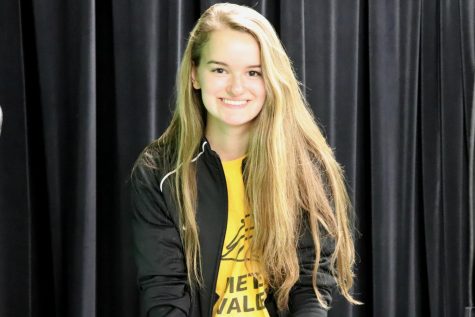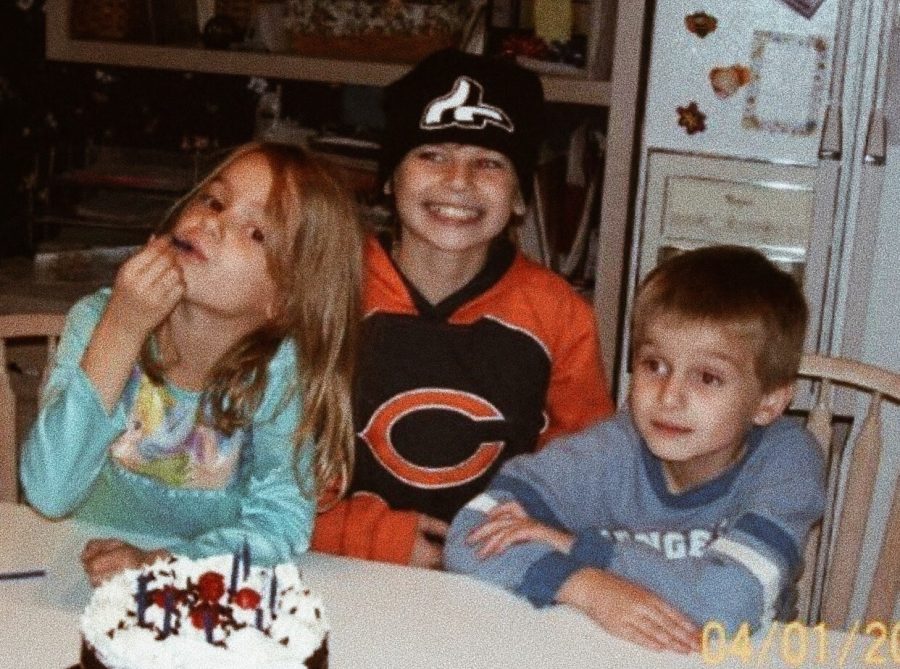Growing up with a twin who has Asperger’s syndrome
Growing up with my a sibling with Asperger’s syndrome has been fun. It has taught me tremendous patience and empathy.
The majority of people living in the United States have likely heard about Asperger’s syndrome, but don’t know its severity or what exactly it is. While creators within the entertainment industry are attempting to bring more awareness to the disorder, it is still misunderstood by most. Asperger’s syndrome, a relatively rare disability, is seen in 200,000 Americans annually. One of those having been affected from birth is my sixteen year-old twin brother.
I cannot pinpoint a time when I acknowledged the differences between my and my brother’s behavioral tendencies, or rather, when I knew to classify what he had as “Asperger’s.” Upon growing up with him, an older brother, and two parents who divorced when we were seven, talk of my twin’s syndrome was rarely heard in the house. My mom was usually more comfortable discussing my concerns for my brother one-on-one, but my dad ultimately dismissed my questions, claiming that it was not a “disorder” that my brother had.
Over time, I was able to notice some of my brother’s little quirks and what they meant. While they will vary for most with Asperger’s, given one’s natural personality traits, several more common symptoms help determine a diagnosis: aggression, impulsiveness, social isolation, and limited and intense interests. Additionally, learning disorders and sensitivity to sound may be among them, as he too has ADHD, and large percentage of those with it have learning impairments.
Some of these childhood misunderstandings continued through our teenage years. Once we entered high school, my brother started to assert his individuality because he saw my concern for him as almost spiteful or malicious judgment. When I would smile at him in the hallways, he would often reply with something along the lines of “go away” or “shut up.” At home, he would do the same, which ties into the notion of his ability to read social cues, even on such an intimate basis as our family life. I still am learning how to appropriately develop our sibling bond while keeping in mind his personal struggles, yet not allowing these to set him apart.
One of my favorite things about my brother is how passionate he is about the things he knows. He has been absolutely obsessed with anything Nintendo related given the influence of my older brother, and invests a good amount of time exploring these interests. As previously mentioned, many people with Asperger’s will often zone in on these passions exclusively. He knows ultimately everything about the Mario Universe and Pokemon, and sometimes I even wonder if he could pursue a career that relates to game implementations of some sort because he has that much knowledge! (Currently, he has been considering going into the culinary arts.) He really bonds with those who care to make conversation about it, which is difficult for myself, as both my brothers’ abilities exceed my own in that realm. However, he sometimes shuts down whenever a topic in which he is disinterested arises.
Despite this, he is slowly learning to broaden the scope of his curiosity day by day, even simply as trying new foods or paying attention to the programs my mom watches on TV. Commonly, family and friends will try to incorporate what he likes into their conversations in order to appease him, or ask about his studies in school, but don’t know their so-called “boundaries.” I have attempted to politely clarify with them that it’s not necessary for them to be overly sensitive in doing so: the syndrome doesn’t inhibit people’s perceptions of their surroundings nor affect their natural intelligence, but merely changes the specific way they interact with others.
No matter the misconceptions surrounding Asperger’s, countless people diagnosed with the disorder have been some of the most spontaneous and enlightening of our time. Andy Warhol, a painter whose twentieth-century pop art was world renowned. Konrad Lorenz, who shared the 1973 Nobel Prize for his discoveries in zoology. If I could have people remember one thing about Asperger’s, it would be that it is a high-functioning condition, and not to ever refrain from approaching those with it. Signs of discomfort I have seen in my brother include him looking down and placing his arm on his head or behind his neck, and opening his mouth in a downward shape and raising his eyebrows, all while staring outward. This is not always a bad thing, but shows that the person is making an effort to articulate his or her thoughts.
Growing up with my brother has, of course, always been fun, and has taught me tremendous patience and empathy. It is still so crazy to me how much one’s ability to communicate invites preconceived notions to determine his or her intellect. However, I know my brother will go places, because his growing confidence and initiative means so much more than a disorder.

Noelle Smagala is a senior, and this is her second year on staff now as social media Editor and website manager of Metea Media. Though she has loved writing...



Mrs. Porada • Oct 30, 2018 at 1:13 pm
Love this story, Noelle! Thanks for sharing.
Adam • Oct 30, 2018 at 8:57 am
Very well written, Great effort, I dont think I could even do this! But props to you for speaking out about what its like to have a sibling with a syndrome like this. 8 )
darkstripe • Oct 30, 2018 at 8:46 am
I myself have PDD-NOS, which is a disorder on the autism spectrum. Personally, one ting I’ve always found as someone on the spectrum is that I’ve always been told to “fight back” against it- certain groups, such as Autism Speaks (who I have a very deep dislike for) try to “cure” autism, and call autism spectrum disorder a “monster” that “destroys lives. But you can’t cure it. It’s not a monster- it as much a part of me as having brown hair or being a certain height. It cannot be removed from me because it’s how my brain operates, and it saddens me that a lot of people think it’s to be fought against like it’s some kind of cancer.
Mr. Gupta • Oct 29, 2018 at 5:35 pm
Noe I love this!!! You’re amazing!!! Miss you!!! From your old teacher Mr. Gupta!!! Much love to you and Nick!
:0 • Oct 29, 2018 at 4:08 pm
good noelle, you opened your heart out in this and let people who are so obsessed with themselves a thing or two about the inside world.
anonymous • Oct 29, 2018 at 8:39 am
i just want to say this is a really well written article and i applaud you for being so open about you experiences!
killian kenny • Oct 29, 2018 at 8:02 am
I am also one of those 200k who have Asperger’s Syndrome; it’s fine most of the time, but it can be annoying when it comes to the social world.
anonymous • Oct 29, 2018 at 7:17 am
As someone who also has a sibling with a disorder (on the autism spectrum), it is so nice to see this on metea media. They are so much more than their disorder, and just a coincidence, but my sibling also absolutely loves video games and cooking!